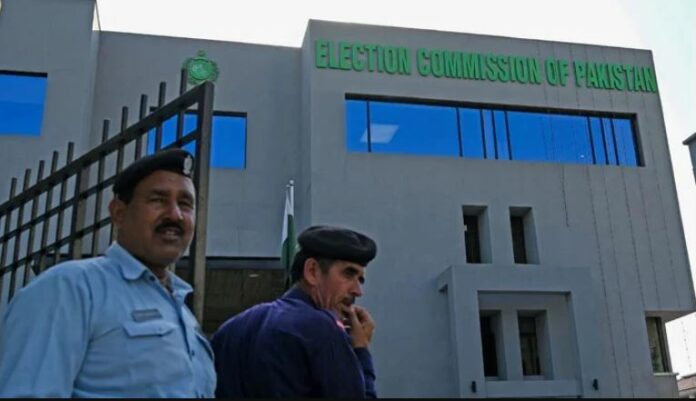By Ali Imran
ISLAMABAD: After denying the reserved seats for women and minorities to the Sunni Ittehad Council (SIC) — which comprises PTI-backed lawmakers — in the National Assembly, the Election Commission of Pakistan (ECP) on Tuesday initiated the process of reallocating those seats to other parliamentary parties.
According to notifications issued by the ECP, three reserved seats for minorities in the National Assembly have been allocated to Pakistan Muslim League-Nawaz (PML-N), Pakistan Peoples Party (PPP), and Jamiat Ulema-e-Islam-Fazl (JUI-F).
Khyber-Pakhtunkhwa’s three minority seats have been allocated to various parliamentary parties, with PML-N, PPP, and JUI-F each securing one seat.
The ECP has also issued notifications for reserved seats for women in the Sindh Assembly. Notably, PPP’s Sumeta Afzal Syed and MQM-P’s Fouzia Hameed have been given the reserved seats for women. The reserved seat for minorities in Sindh Assembly has been given to PPP’s Sadhumal Surendar Valasai, with sources indicating that the allocation of other reserved seats will also be announced soon.
A day earlier, the ECP refused to allocate reserved seats to the SIC as it had not submitted a “priority list” for the same prior to polls. The ECP had deprived the PTI of its election symbol—the cricket bat—on December 22, 2023 in view of irregularities in its intra-party polls. This decision was upheld by the Supreme Court on January 13, weeks before the February 8 general elections.
Due to the absence of an election symbol, the party had become ineligible to submit its priority list for reserved seats to the ECP while its candidates had to contest the last month’s elections as independents. As independent candidates have to join a political party three days after the announcement of official election results, the PTI-backed candidates joined little-known SIC.
The SIC later approached the ECP for allocation of reserved seats in proportion to its general seats in the National Assembly and provincial legislatures. A five-member ECP bench led by Chief Election Commissioner Sikandar Sultan Raja last week reserved its order on the petition after hearing arguments.
The ECP on Monday unveiled its order stating that the SIC is not entitled to claim quota for reserved seats for women and non-Muslims “due to having the non-curable legal defects and violation of mandatory provision of submission of priority list for reserved seats which is the requirement of law”.
The ECP member for Punjab, Babar Hassan Bharwana, however, dissented from the majority order to the extent of allocation of the remaining reserved seats to other political parties in the legislature. “In my opinion, Article 51 (6-d) and Article 106 (3-c) of the Constitution clearly state that reserved seats will be allocated to the political parties on the basis of the total number of general seats secured by each political party from the province concerned of the National Assembly or such reserved seats secured by each political party in the provincial assembly.
“Hence, these seats shall remain vacant till the time any such amendment to Article 51 or 106 of the Constitution is made by parliament,” he added.




